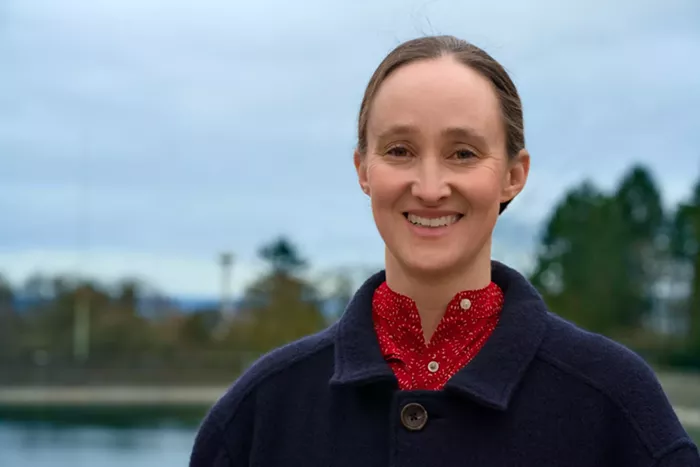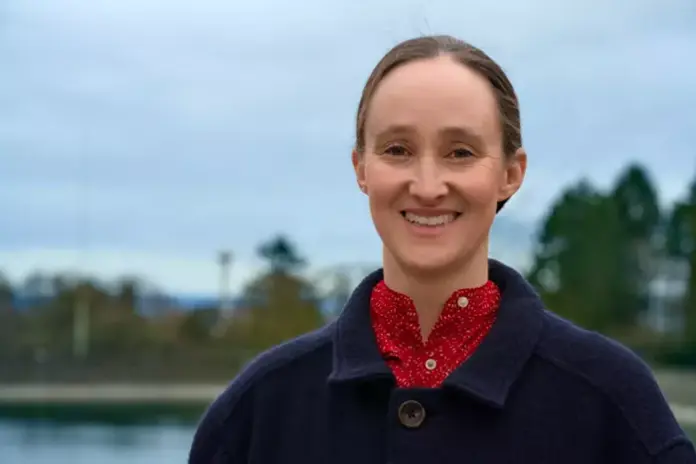This post was originally published on this site

There’s a new political action committee (PAC) in town and it’s all in for Katie Wilson, the progressive mayoral candidate who whooped Mayor Bruce Harrell in the primary.
PROTEC17, the union for professional and technical city workers, had already endorsed Wilson over their boss when it kickstarted the Katie Wilson for an Affordable Seattle PAC, rubbing more salt in the Mayor’s gaping electoral wounds. Together with non-profit Common Power, the union filed the PAC’s paperwork on primary day in preparation for the lengthy and expensive general election to come.
A PAC might be the only way that Wilson can continue fundraising this campaign season. In Seattle elections, candidates that participate in the Democracy Voucher Program are subject to spending limits. Candidates for mayor generally cannot raise more than $450,000 per cycle; one cycle is the primary, the other is the general election. Wilson exceeded the primary cap of $450,000, and with her post-primary momentum, Wilson is barrelling toward the general election’s $450,000 cap as well. Once she hits that limit, Wilson can’t raise more money until her opponent (Harrell) catches up. PACs, however, don’t have the same limitations, and without her own, progressive politicos worry big business will turn the spigot on for Harrell at the eleventh hour, putting Wilson in a position to play catch up.
Wilson has raised nearly $627,000, and $150,625 of that came in since the primary. Despite those crushing election results, Harrell’s not dead in the water. Harrell has more than $529,000; $116,000 of which came in after his piss poor showing this month. And his PAC, Bruce Harrell for Seattle’s Future, has already raised $377,000 during the campaign, with $63,000 coming since primary day.
Wilson is closing in on that $450,000 ceiling through democracy vouchers and individual contributions. Stephen Paolini, a political consultant involved with the new PAC, believes Wilson will hit that fundraising cap in about two weeks.
“This is a place for the momentum to go,” Paolini says.
In the interim, while Wilson is stuck frozen in fundraising cap doom, Harrell plays catch up, and the business community decides when to unzip their purses, the PAC can keep accruing funds and spending to support Wilson.
“We have to step in and be her backup and be a place where people can give [money] they might otherwise want to have given to the candidate,” Paolini says.
Notoriously, progressives don’t often use PACs. They’re a political tool mostly associated with the business community and deep-pocketed, monied interests looking for further corporate dominance. A Citizens United-type beat.
Business interests, money, and politics is the ugliest throuple that Seattle can’t shake at the polycule picnic. Local progressives fear we could have another 2019 on our hands, you know, when Amazon dropped $1.5 million in city elections? The strategy can’t be twiddling our thumbs and hoping the same thing won’t happen again. It’s time to play the game, Paolini says.
“We have to figure out a way as progressives to get over this icky feeling of doing the political things and starting a PAC,” Paolini says.
Political consultant Crystal Fincher says the new Donald Trump administration is waking people up about how shamelessly and unambiguously monied interests are using every lever of power at their disposal. And it’s not just about the money, it’s about the communication money can buy. No matter how prolific the door-knocker, no candidate can knock on every door. Getting the word out costs candidates a pretty penny.
“If you are trying to counter the influence of people who do have bottomless pockets, it does take some resources,” Fincher says.
Harrell has always been chummy with big business and the wealthy. Even though Wilson trounced Harrell in the primary, there’s another universe of voters in the general election.
“This is not a situation like the City Attorney race [between incumbent Ann Davison and Erika Evans], or even [City Council President] Sara Nelson, where they have much steeper hills to climb,” Fincher says about local races with bigger gaps. “With a lot of communication to Seattle voters who maybe weren’t paying attention during the primary, who don’t know all the details, there’s potentially enough votes for Bruce to win this thing.”
News Editor Vivian McCall contributed reporting.





















